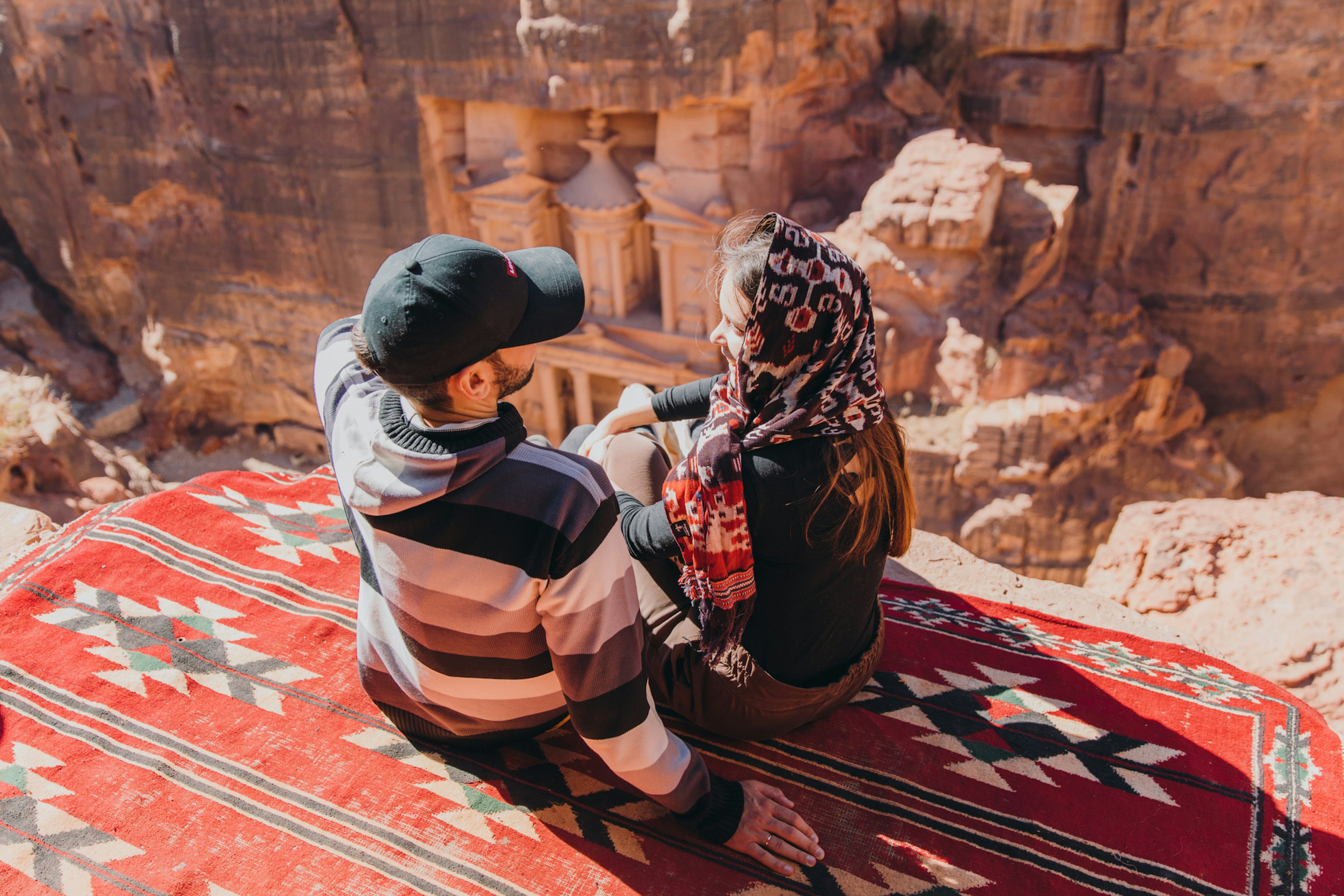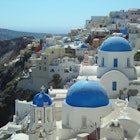

From the Dead Sea Coast to the Bedouin camps in Wadi Rum, this guide to seasons and events in Jordan can help you plan your perfect trip ТЉ RuslanDashinsky / Getty Images
Jordan is a small country packed with wonderful attractions and experiences but don't let its compact size fool you т covering the major sites in one trip is no easy task.
Though it's largely covered by desert, the weather is not uniform and varies depending on altitude, location and season. When choosing the best time to visit Jordan, youтll need to first decide whatтs most important to you.
Two of the biggest factors to consider are the weather and your budget. Summers in Jordan tend to be hot and dry while winters are cold and wet т if youтre interested in outdoor activities, fall and spring are your best bet. However, the ideal weather means you can expect larger crowds and higher prices.
We've got all the information you need to make an informed decision about the best time for your trip to Jordan, no matter your interests or budget.

March to May and September to November are the best times for outdoor adventures
These two windows of pleasant weather т between the cold winter rains and hot summer sun т are ideal for all things outdoors: touring historical sites, hiking, rock climbing, rooftop bars and sleeping under the stars. Other travelers and locals will be out and about too, so expect crowds and peak season pricing. If youтre traveling to Jordan in the fall or springtime, itтs wise to book well in advance.
March and April are the perfect times to take a hike, especially in northern Jordan where wildflowers т including the gorgeous black iris т are blooming. Fans of long-distance running flock to the area to take part in the from the shores of the Dead Sea to Aqaba City on the Red Sea. The temperature rises in May but hasn't yet hit the dizzying summer highs. It's the perfect time to head to the beach and enjoy a relaxing break.
The upside of intensely hot summers warming up the landscape is that the Red Sea is still deliciously warm when the mercury starts to drop in September. It's the perfect time for snorkeling and diving and these ideal conditions continue until November. The annual olive harvest begins in late September/early October and a multi-day tour is the perfect way to experience it alongside the local community т and have some great bespoke options.
Much like springtime, fall is ideal for stepping out to enjoy the top things to do in Jordan, including its natural beauty, beaches, hikes and historical sites. Expect higher prices and crowds. Temperatures т and consequently, hotel rates т begin to drop in November. This brief shoulder season is a good time to take a diving holiday for those visiting on a budget.

December to February is the best time for budget travelers, but pack for wet weather
Although winter in Jordan is short, the weather tends to be cold and wet across most of the country (with the exception of a few pockets of slightly warmer weather in places like the Jordan Valley and Aqaba), making this the least popular season to visit.
Jordan receives 75% of its annual rainfall during this time, and heavy downpours can cause site closures, tour cancellations and flash flooding, so youтll need to be flexible with your itinerary and expectations. If you're booking a rental property, check that it has heating.
Create a bad weather backup plan: indoor activities such as art workshops, museum visits and cooking lessons are a great way to ride out the winter storms. The good news is that there are fewer visitors and lower prices, so if you want to visit Jordan on a budget, this is the time to do it.
As the temperature starts to rise a little in February, locals leave their homes to attend the Aqaba Traditional Arts Festival т a celebration and preservation of Bedouin culture in the seaport city.

June to August are the hottest months of the year
Summer in Jordan can be uncomfortably hot (surpassing 38ТКC/100ТКF on some days), so outdoor activities are not as enjoyable and can even be risky if youтre not properly hydrated and protected from the sun. June is the time of year to seek shade and cool water in wadis (canyons) and waterfalls.
But summer isnтt a true тlowт season because travelers from Gulf countries, where temperatures are even higher, seek respite in Jordan. However, you can still expect fewer crowds at tourist sites, so be prepared to start early, avoid the midday sun, and always have water and sunscreen on hand.
Foodies will be pleased to find that fresh fruits т including watermelon, figs and dates т are in season and readily available at roadside stands.
Clear skies make August a perfect time for stargazing. Book an overnight stay under the stars in Wadi Rum or on the rooftop of .
Ramadan is a meaningful time for cultural understanding
The dates for this sacred month for Muslims shift every year. Services, hours of operation, alcohol sales and more might be affected during Ramadan. Before booking your trip to Jordan, check to see if your planned dates overlap and read our practical guide to visiting Jordan during Ramadan.
It will help you know what to expect, and then decide whether itтs a fit for you. For those interested in learning about Jordanian and Muslim culture, Ramadan can be a meaningful time to visit.
Explore related stories

Tips & Advice
How to maximize your PTO and take the trip of a lifetime in 2025Dec 13, 2024 тЂ 9 min read



 Destination Practicalities10 things you need to know before visiting Jordan
Destination Practicalities10 things you need to know before visiting JordanNov 30, 2023 тЂ 7 min read






